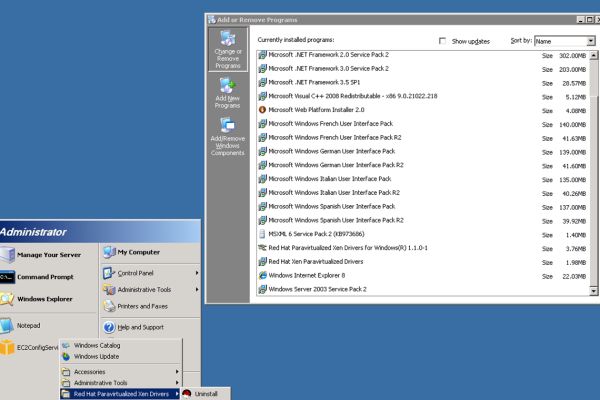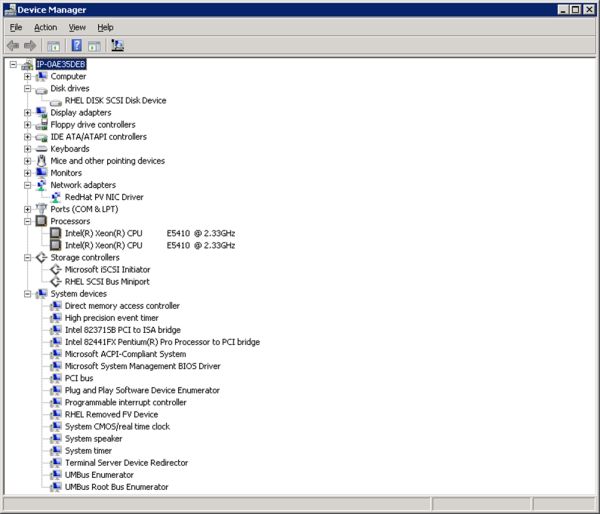
Original Link: https://www.anandtech.com/show/4245/ask-the-experts-cloud-computing
Ask the experts: Cloud Computing Questions Answered
by Johan De Gelas on March 28, 2011 7:25 AM EST- Posted in
- CPUs
- Ask the Experts
- Cloud Computing
Question #1: Does Cloudsourcing Email Make Sense?
For SME’s (Small and Medium Enterprises) I would definitely advise against an on-premise (Exchange) mailserver. Not only is there the Capex cost of buying and the Opex cost of hosting the server, keeping Exchange operational requires quite a bit of expertise and patching. In other words, you’ll waste a lot of money on paying your administrator who has to divide his attention between the Exchange server(s) and many other IT tasks. E-mail must be about the most essential IT tool your employees have, so it is not wise to take any risk there.
I’ll focus on the two options I have experience with: a hosted version of Microsoft Exchange or Gmail for Business. Contrary to popular belief, Gmail for Business is quite different from the Gmail that we are all using. Gmail for Business is not datamined by Google, and no ads are displayed. It is also hosted on an infrastructure that offers higher availability and security than the regular Gmail. Costing only $50 per user per year for a 25 GB (!) , Gmail is easily two times less expensive than a hosted Exchange account with far less storage space.
The best argument against outsourcing e-mail to the cloud is also gone: Gmail for Business also comes with enterprise support. And Google also works with partners now, so you can get local support too. We are working together with Romneya for example, a Belgian Google Partner.
Support for mobile devices is pretty good: the blackberry enterprise server is supported very well and Gmail works – of course - fine with Android based mobile devices too. Google’s solution is also far superior when it comes to searching thousands of e-mails. For example, our exchange server still does not get that “Johan De Gelas” and “De Gelas Johan” are the same person. When searching, I am never sure I get all the mails I am looking for.
The only thing where I find our Exchange server to be slightly better is the scheduling events in calendar since the exchange server is integrated with the Active directory server.
Gmail is in my experience highly reliable. Gmail for business offers a 99.9% SLA, and I can’t remember any downtime since we started using it 2 years ago. No on-premise server can come even close, and even the hosted solutions can not offer this degree of availability.
So e-mail in cloud makes a lot of sense. It is much cheaper, easier, offers more storage, is more secure and reliable than any on-premise or hosted server. I am quite skeptical of some cloud services, but I can recommend placing your mailserver in the cloud.
What Would the Benefits and Disadvantages Be for Moving a Site like AnandTech to Amazon EC2?
It is very easy to startup an Amazon EC2 instance. An instance is a combination of a certain amount of virtual hardware running on top of Xen and an operating system “template”. All instances have the right Xen drivers already installed, so that saves some time. Below you can see the Windows 2003 instance with the Xen paravirtualized drivers installed.
You simply browse to the website, choose the right instance and pay with your credit card.
It is also relatively easy to make an Amazon EC2 based site scale out quickly, so sudden peaks (e.g. Anand writing about the newest SSD) are not a problem anymore. And you pay only for the time and the resources that you actually use. That is a huge advantage compared to buying and maintaining enough servers to handle some hard to predict peak load.
However, there are some disadvantages too. Amazon’s EC2 "normal" disk performance is pretty bad, even sequential access gets hardly past 20-30 MB/s. Typical disk performance with a bit of random and sequential access is sometimes as low as 3 MB/s.
Secondly, most processors in the Amazon datacenter are Xeon 53xx “Clovertown” and Xeon 54xx “Harpertown”. And despite the fact that most of them are running at 2.33 GHz, an EC2 compute unit is no more than half a core, or a Xeon running at 1.2 GHz.
Thirdly, you better size your “normal” virtual machine very well, because there is a huge difference between the pricing for a small, medium or large instance. A large instance easily costs three times as much as a medium one.
One last tip: make sure your webservers run on linux. A linux instances costs about 50% less than a Windows one!









